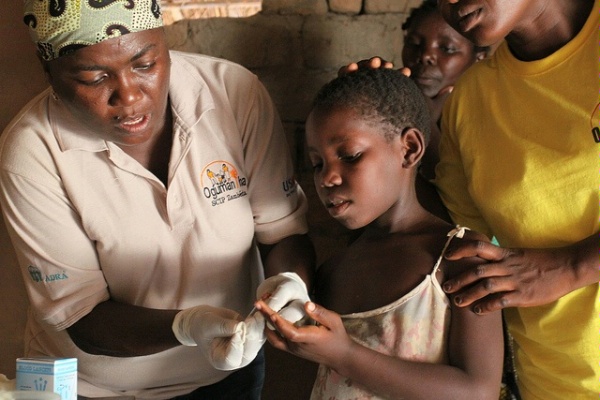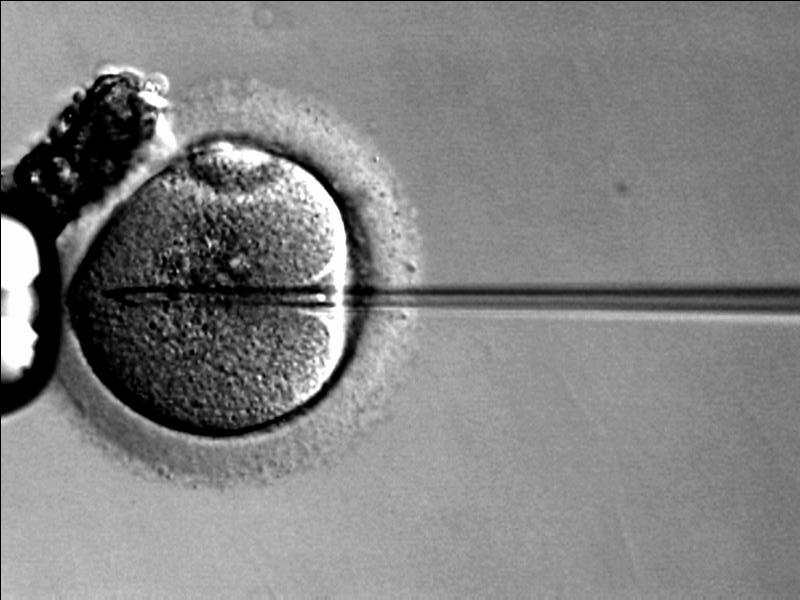By Joshua Kalter
The oft-repeated “America First” mantra has been a rallying point of the Trump administration, one that includes promises like bringing jobs back from overseas, rebuilding a crumbling infrastructure, and increasing military spending. As the mid-March budget proposal release signifies, a 28 percent slash in the budgets of both the U.S. Agency for International Development (USAID) and the State Department will offset the enormous cost of a $52 billion increase in military spending. These drastic cuts will have far-reaching consequences for U.S. diplomatic, economic, and security interests. Cuts to two programs in particular—the President’s Emergency Plan for AIDS Relief (PEPFAR) and the Global Fund to fight AIDS, Tuberculosis (TB), and Malaria—will wreak havoc in the developing world.
Through partnerships, PEPFAR has provided antiretroviral treatment to millions of children like this young girl in Mozambique:

Introduced by President George W. Bush to address the worldwide HIV/AIDS epidemic in 2003, PEPFAR is the largest investment by a country to fight a single disease ever. By translating scientific and public health research into sustainable action, PEPFAR’s support allowed 2 million babies to be born HIV-free and provided antiretroviral treatment to 11.5 million people. This support accounts for a reduction in both mother-to-child transmission by 70 percent globally, and adult HIV incidence between 51 percent and 76 percent in Zimbabwe, Malawi, and Zambia.
The Global Fund, while not a U.S. government program, relies heavily on assistance from donor nations, such as the United States, United Kingdom, and Sweden. Since 2002, the Global Fund treated 15.1 million tuberculosis cases, distributed antiretroviral HIV treatment to 9.2 million people, and distributed 659 million mosquito nets to prevent malaria. These efforts contribute to 22 million lives saved and a 33 percent decline in deaths from HIV, TB, and malaria.
PEPFAR and the Global Fund created laudable changes to the world health landscape. HIV/AIDS, responsible for 1.5 million deaths worldwide in 2000, killed only 1.1 million people in 2015 and is no longer a member of the world’s top ten causes of death. Tuberculosis, while still a leading cause of death worldwide, killed 1.37 million people in 2015—down from 1.67 million in 2000. Fifteen years ago, HIV was a death-sentence; through PEPFAR and the Global Fund’s continued funding, we could see the end of HIV by 2030. While Trump’s proposal seeks to maintain current funding for PEPFAR and the Global Fund, these programs will not be able to adapt to the rapidly growing adolescent population in sub-Saharan Africa. Should the United States fail to meet the standards of funding necessary to help this initiative grow, 17.6 million people will contract HIV and 10.8 million people will die of AIDS-related causes by 2030.
The United States contributes the most foreign assistance in the world, and the results are impactful and far-reaching, which is likely why most Americans erroneously believe that foreign aid accounts for 26 percent of the U.S. budget. Many Americans are mistaken: at $42 billion, foreign aid accounts for approximately 1 percent of the entire U.S. budget and a fraction of a percent of our Gross National Income (0.17 percent). This pales in comparison to defense spending, another category that the U.S. spends more on than any other country. Military spending already accounts for 16 percent of the U.S. budget, or $587 billion.
Obama’s FY 2017 budget proposal

Slashing the already fractional amount of money budgeted to the State Department is not responsible reallocation of funding. This proposal is a political demonstration—a way to show voters that America is being put first. The White House must rethink their proposed budget and make cuts that will not risk interrupting treatment for millions of patients in the developing world—the consequence of which could be drug resistance or death.
Putting America first doesn’t mean putting the lives of the sick last. Foreign aid and diplomacy, not just the armed forces, play integral roles in keeping Americans safe. If strengthening the military is truly of the utmost importance, it should not come at a cost to innocent lives. Are the millions of lives dependent on U.S. foreign aid fundamentally less valuable than ours?
I urge all American federal lawmakers to unilaterally fight for State Department and USAID funding. Together, we can end HIV and tuberculosis.

